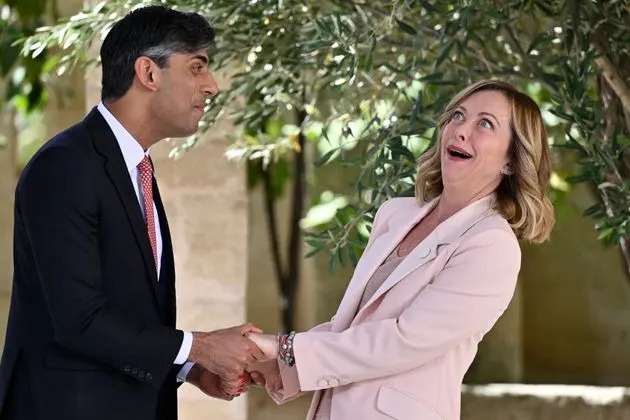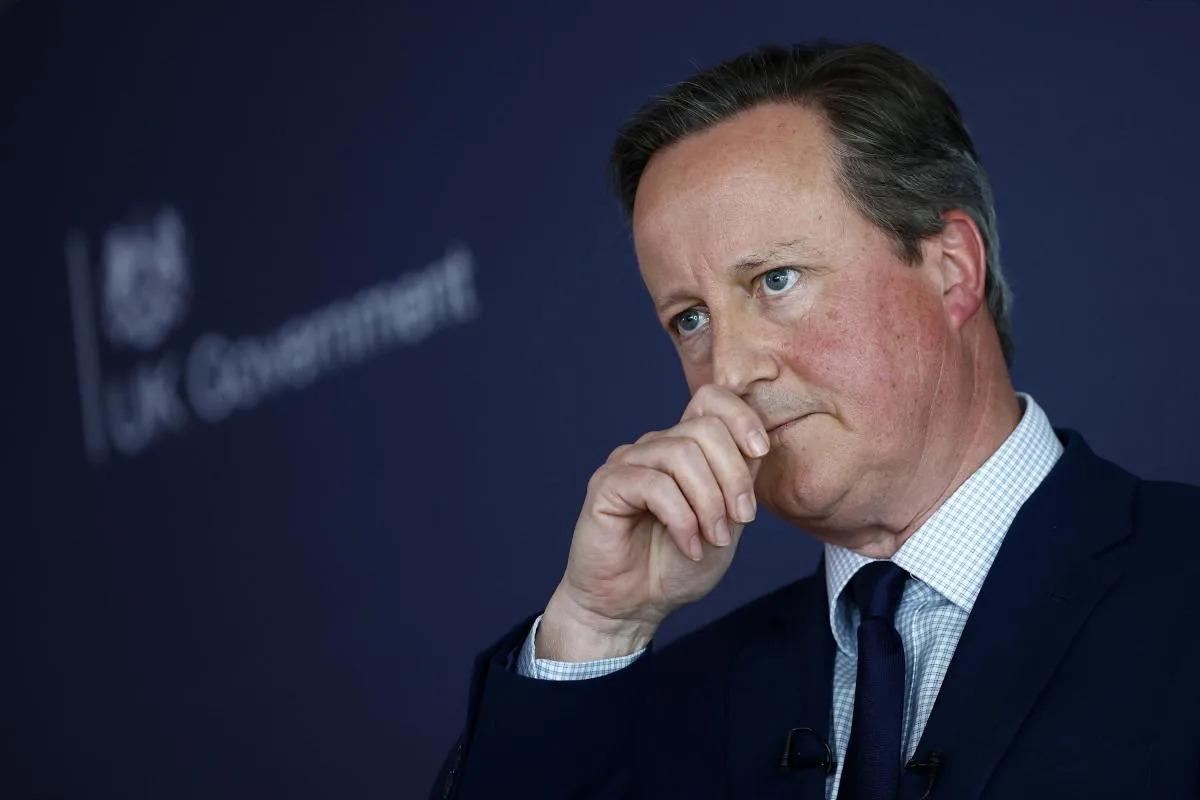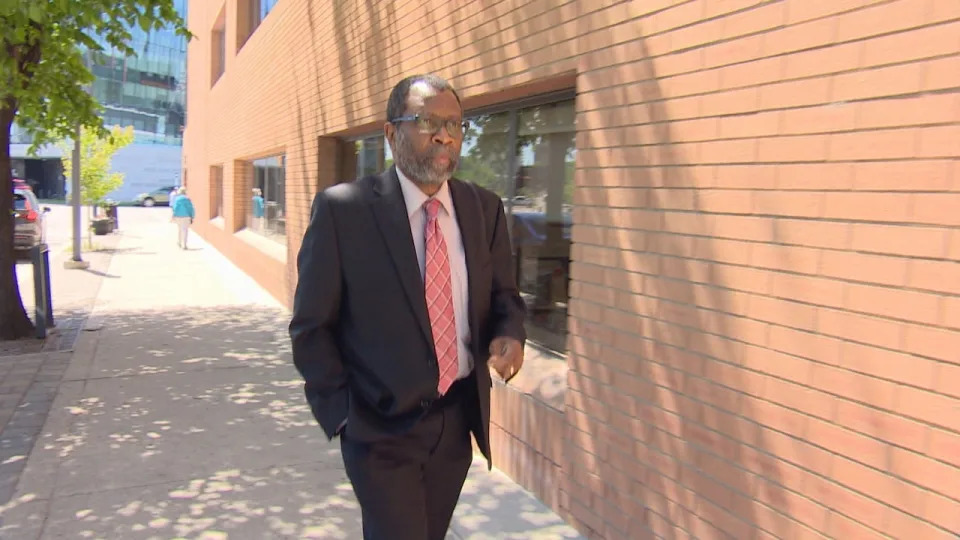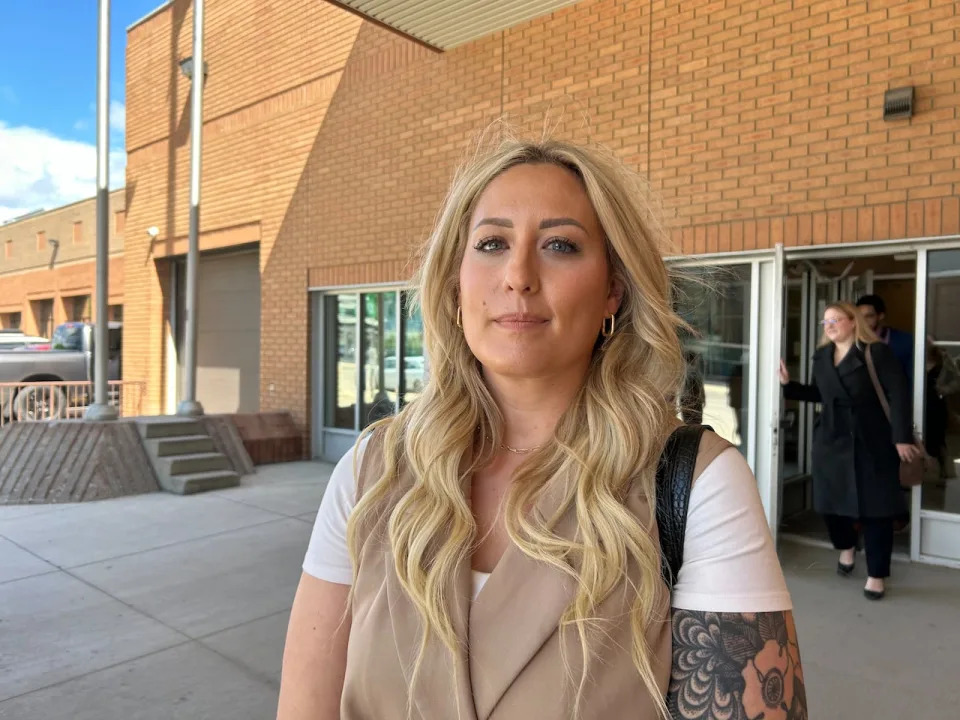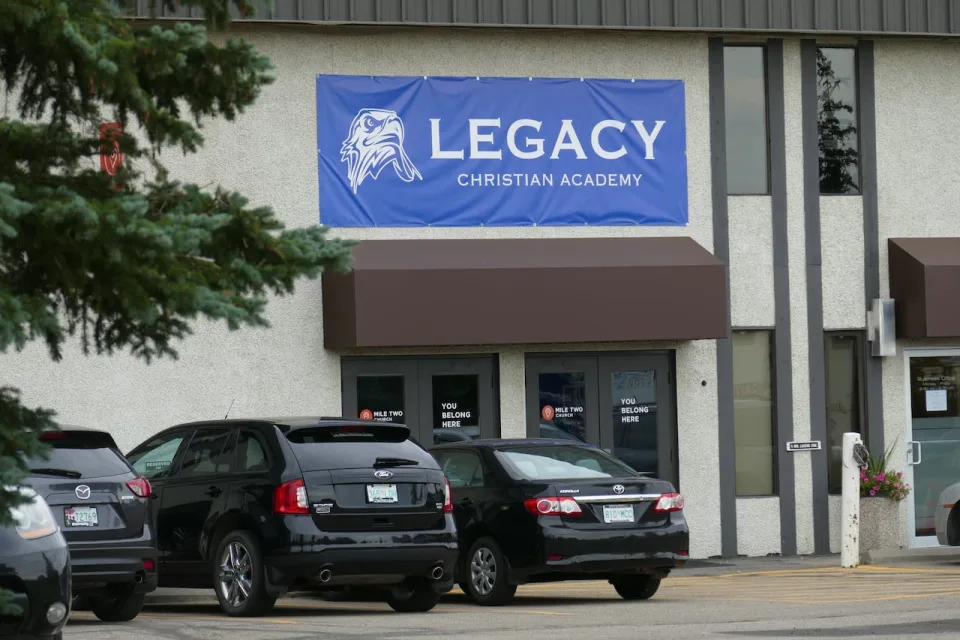Farage was speaking after a youGov poll put Reform ahead of the Tories for the first time.
Stuart Henderson
Updated Fri, 14 June 2024
Reform UK leader Nigel Farage at The Wellington, in central London, on Friday. (PA)
Nigel Farage has demanded a slot on the BBC's Question Time election debate next week.
The Reform UK leader told a press conference on Friday that one recent poll - which put his party just ahead of the Conservatives for the first time - meant he should share a platform on the BBC's four-way leaders' special on 20 June.
“I think we can demand of right now that the BBC put us into that debate,” he said. "I would also very much like to do a debate head-to-head with Keir Starmer and the reason’s very simple – we think this should be the immigration election.”
Farage also labelled himself “leader of the opposition” during the press conference, held in central London. He also predicted his party would get six million votes. That total would be significantly more than the 3.9 million votes his former party, Ukip, received under his leadership in 2015 when it secured 12.6% of the vote.
Read more: Will Nigel Farage's Reform UK 'beat' the Tories in the election?
The debate next week, hosted by Fiona Bruce, is currently scheduled to include representatives of the UK’s four largest parties: the Conservatives, Labour Party, SNP and Liberal Democrats.
The shock YouGov poll released on Thursday night showed support for Reform at 19%, just ahead of the Tories on 18%.
And while the results of the poll were certainly newsworthy, it is the only poll to date to have Reform ahead of Rishi Sunak's party.
According to the PA news agency, an average of all polls carried out wholly or partly during the seven days to 13 June puts Labour on 43%, 21 points ahead of the Conservatives on 22%, followed by Reform on 14%, the Lib Dems on 10% and the Greens on 6%.
(PA)
That means Reform’s average is up one percentage point on the previous week while the Tories are down one point.
And while Reform may be polling higher numbers than the Lib Dems, the UK's first-past-the-post voting system means it is highly unlikely Farage's party will get anywhere near the number of seats being targetted by Ed Davey.
The latest prediction based on opinion polls from 05 Jun 2024 to 13 Jun 2024, sampling 19,426 people. (Electoral Calculus)
According to polling experts Electoral Calculus, The Conservatives are projected to win between 42 and 236 seats, the Lib Dems between 34-77 seats, the SNP between 20-38 and Reform way back, with an expected one seat and a possible high of seven.
However, it is clear that Reform UK has continued the renewed momentum sparked when Farage announced he was taking over as leader and would stand for election in the Essex seat of Clacton on 4 June.
An 'utter disaster' for the Tories
The continued rise of the Reform UK is also marked it could potentially spell election disaster for the Conservatives, one of the UK's leading election experts warned in the wake of the YouGov poll.
Polling expert Professor Sir John Curtice said Reform's growing support was a "real, real problem for the Conservatives" because nearly all the voters shifting their support were switching from those who had previously backed the Tories in 2019.
“Any chance the Conservatives ever had when they fired the starting gun on May 22 that they might be able to narrow Labour’s lead was predicated on them being able to win back those Reform voters.
“Their failure already to squeeze the Reform vote before Farage entered was itself bad news, and then Farage has boosted it further and made things even worse.
Prof Curtice said the average of recent polls shows backing for Reform at about 15% or 16%, was an “utter disaster for the Conservatives”.
Sunak insisted that voting for Reform UK would be “handing Labour a blank cheque” as he played down the YouGov survey.
But in Friday's press conference, Farage claimed his party was "well ahead" of the Conservatives in several regions including the North East, the North West, the East Midlands, in the West Midlands, as well as in the so-called red wall. Adding to this he said: "The inflection point means that, actually, if you vote Conservative in the red wall, you will almost certainly get Labour. A Conservative vote in the red wall is now a wasted vote."
Why Reform will struggle to win any seats – despite beating the Tories in the polls
Ollie Corfe
Fri, 14 June 2024
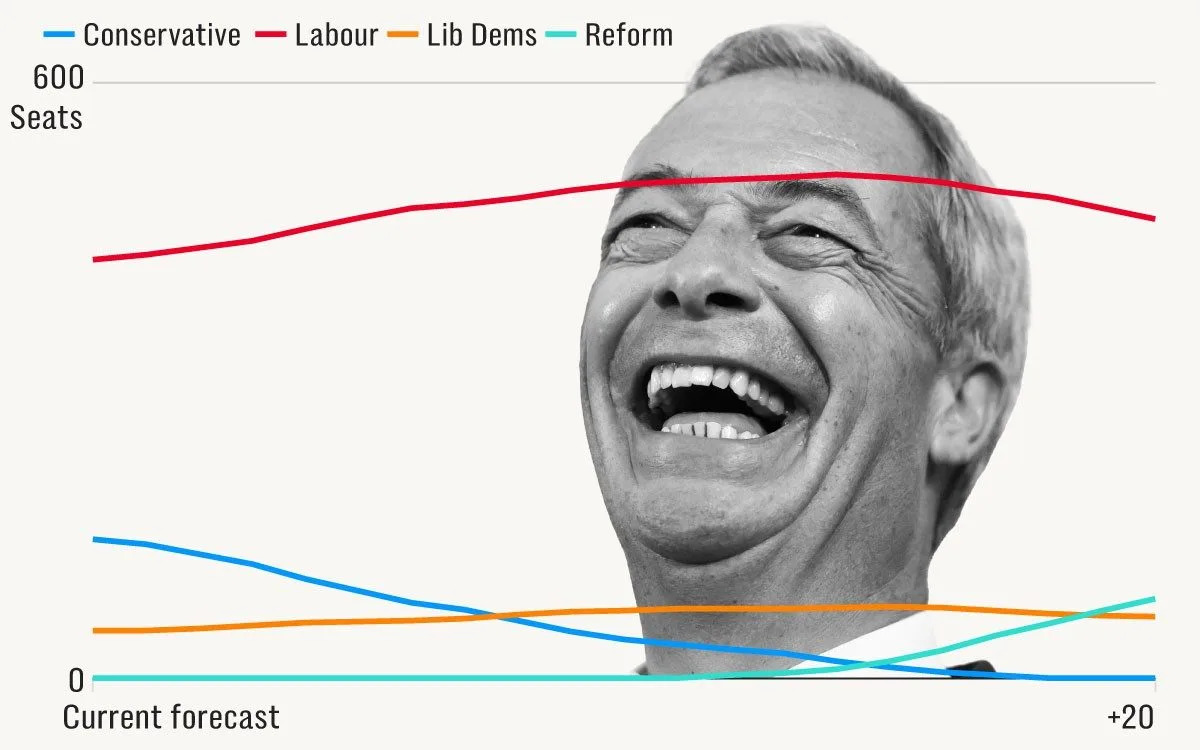
One week ago, Nigel Farage voiced his goal for Reform to overtake the Conservatives in the polls.
On Thursday, a YouGov poll said he had finally achieved it, surpassing the Tories by one point.
The poll has Reform on a national vote share of 19 points, with the Conservatives trailing on 18. Labour continues to be way ahead on 37 points.
It is important to note this is just one poll: across 12 pollsters’ latest polls, Reform are averaging on 14 per cent, compared to the Conservatives on 22 per cent.
Reform has seen a jump in support – around 3 to 4 per cent since the election was called.
Despite this, very few experts, including the party itself, predict it will secure more than a handful of seats.
This is because, unlike a party like the Liberal Democrats, support for Reform is spread evenly across the country rather than being concentrated in a small number of seats. So while it can score high in nationwide polls, it may not be able to secure enough support in individual seats to claim success – especially given the UK’s first past the post electoral system.
Are Reform on course to win seats in Parliament?
Speaking to BBC Breakfast on Friday, Mr Farage said: “Whatever we do, we may not get the number of seats we deserve, but are we going to win seats in Parliament? Yes.”
The latest YouGov MRP – which polls voting intention in each constituency, surveying some 50,000 people in total – conducted just before Mr Farage took control of the party, had the party on no seats whatsoever.
However, Mr Farage is clearly optimistic that the recent surge in the polls since his return to the helm of Reform will result in the party sending MPs to Westminster.
Hypothetically, Reform will need a much larger percentage of the vote than has been seen so far for his party to secure more than a couple of seats.
What constituency swing is needed?
This latest MRP, which uses modelling and constituency-level polling to predict individual seat outcomes, had Labour on 422 MPs to the Conservatives 140 MPs.
On average, across all the seats, Reform secured 10.2 per cent of the vote share in the survey. This left it in second place in 27 seats, but the winner in none.
In a situation where, uniformly across all seats, each vote gained by Reform was stolen solely from the Conservatives, the party would need to see its share increase by 12 points before it started picking up seats.
This is because in the seats where Reform comes second, it is Labour that stands in the way, not the Conservatives and, even where it is in second, it is substantially behind the projected winner.
For example, YouGov’s MRP has support for Reform at its strongest in Barnsley North, at 23 per cent to the Tories’ 7 per cent. If every Conservative voter abandoned the party and threw their weight behind Reform, its share would rise to 30 per cent. It would still lose to Labour, polling there at 48 per cent.
If there was a uniform 12-point swing to Reform in every seat from current polling levels, Reform would return three MPs: Mr Farage in Clacton, Richard Tice in Boston and Skegness and a third in New Forest East.
It would not be until a 15-point swing from the Tories to Reform that it would secure over 10 seats. And a massive 19-point swing would be needed to get them above the Lib Dems, in which case the Conservative party would be left without a single seat.
In a second scenario, where for every two votes Reform steals from the Conservatives, it takes one from Labour, Reform getting an MP elected is more within reach.
In this scenario, Reform gets its first and only seat with an 11-point swing. Interestingly, its first winner isn’t the party leader, but Garry Sutherland in Exmouth and Exeter East.
Lee Anderson would join the Reform victors with a 12-point swing, Mr Farage and Mr Tice after a 14-point swing, and a 17-point swing would see them become the second party on 81 seats.
Why is it so difficult?
The bar for becoming a major political party is incredibly high.
This is almost entirely explained by the first-past-the-post system, where parties are punished if their support is distributed widely instead of focused in a small number of seats.
For Reform voters, one point of contention will likely be that the Liberal Democrats, currently trailing them nationwide on 10 per cent of voting intention, are predicted by the YouGov MRP to secure 48 seats.
Crucially, this Liberal Democrat vote share is extremely focused in some areas.
The Liberal Democrats are projected to gain less than 10 per cent of the total vote share in around three quarters of seats across the country. Reform on the other hand is predicted to experience vote share this low in fewer than half of seats.
However, the Lib Dems could see shares of over 30 per cent in around 11 per cent of all seats. Reform is not expected to see this anywhere.
Effectively, this means that while Reform has a more uniform level of middling vote share across seats, the Liberal Democrats experience very high support and very low support.
This feeling is not unique to Reform.
The Greens could have its vote share triple this year and even become the second party with younger parties, but are still only projected to pick up Brighton Pavillion and – maybe – Bristol Central.
Sophie Wingate and Ian Jones, PA
Fri, 14 June 2024
With a major poll showing Reform UK edging past the Conservatives for the first time, Nigel Farage’s party has the potential to blow up the General Election.
Here the PA news agency answers some key questions on the party.
– Where did Reform UK come from?
It was formed in 2021 as a relaunch of Mr Farage’s previous project, the Brexit Party, which had in turn been founded from the remnants of Ukip.
Mr Farage helped found Ukip in the 1990s, which in later decades ate away at Tory support and proved instrumental in paving the way for the in-out referendum on Britain’s membership of the EU.
In the aftermath of Brexit, Mr Farage announced he was quitting for a third time as Ukip leader. As the party descended into infighting, amid claims of a sharp turn to the right, he dramatically announced he was returning to the political front line with the formation of the new Brexit Party.
Mr Farage and Richard Tice in 2020 announced the Brexit Party would be renamed Reform as they railed against Covid-19 lockdowns. Unusually, it was set up as an “entrepreneurial political start-up”, with Mr Farage the company’s majority shareholder and honorary president.
Reform remained relatively unknown until recently, despite a major boost with the defection of Tory party deputy chairman Lee Anderson earlier this year.

Lee Anderson defected to Reform while he was the MP for Ashfield (Dominic Lipinski/PA)
Mr Anderson became the party’s first MP following his suspension from the Conservative Party over comments he made about London Mayor Sadiq Khan.
– What happened when the General Election was called?
After Rishi Sunak called the General Election, Mr Farage at first announced he would not stand as a Reform UK candidate, saying he would support his party from the sidelines while focusing on getting Donald Trump re-elected as US president.
But less than two weeks later, he performed a screeching U-turn. Not only would he seek to become the MP for Clacton, but he would do so as leader of Reform UK, replacing former businessman and MEP Mr Tice in the role.
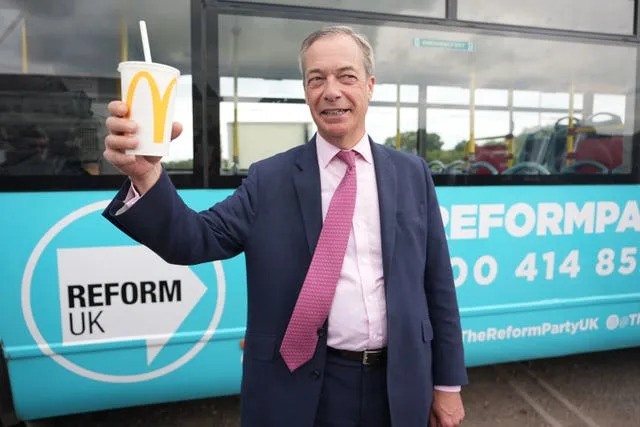
Reform UK leader Nigel Farage holding a McDonald’s banana milkshake after one was thrown at him in Essex (James Manning/PA)
Mr Farage, who has failed in his previous seven attempts to be elected to the Commons, said his decision was motivated by a “terrible sense of guilt” towards his supporters as he vowed to lead a “political revolt”.
His takeover came as a huge blow to Mr Sunak’s already faltering campaign, heightening Tory fears that Reform could snatch voters from the right.
Following the veteran Eurosceptic’s decision to stand, celebrated with great fanfare by party backers in the Essex seat he is hoping to win, Reform began to climb in the polls.
– What are Reform’s policies?
The party will fight the election on immigration, pledging an “employer immigration tax” on companies that choose to employ overseas workers instead of British citizens.
This would see businesses paying a national insurance “premium” of 20% of an employee’s salary, as opposed to 13.8%, if the worker is from overseas.
The party has vowed to freeze lawful immigration with the exception of healthcare and leave the European Convention on Human Rights.
On the economy, Reform has set out an ambition to slash £91 billion off public spending by stopping the Bank of England paying interest on quantitative easing reserves and finding £50 billion of wasteful spending in Whitehall.
It has promised there would be no tax on earnings under £20,000 a year.
Reform has also said it would abolish the Government’s net zero targets and “stand up for British culture, identity and values”.
The party is set to unveil its full manifesto on Monday June 17.
– How have Reform’s poll ratings changed since the campaign began?
On the day Mr Sunak called the election, Reform was averaging 11% in the opinion polls.
The party remained around this level until the first week of June, when – a few days after Mr Farage announced he was standing as a candidate – its average poll rating began to climb and currently stands at 15%, six points behind the Conservatives’ average of 21%.
While most polls published in the past two weeks show a clear rise in support for Reform, there is no agreement among them over how the party is faring in relation to the Conservatives.
Only one poll so far has put Reform ahead of the Tories. The YouGov poll put Reform at 19% to the Tories’ 18% in voting intention, although pollsters caveated that Reform’s lead is within the margin of error.
Five other polls have been published in the past 24 hours, all of which show Reform trailing the Conservatives between one percentage point (Redfield & Wilton) and 12 points (More in Common).
– So what are Reform’s chances in the election?
Mr Farage has been bullish about Reform’s chances, expressing hope the party can “get through the electoral threshold” while declining to put a target on the number of seats he believes it could win.
But the first-past-the-post electoral system means the party could gain millions of votes without taking a single constituency.

Nigel Farage and Richard Tice announcing their party’s economic policy (James Manning/PA)
Nonetheless, Reform could have a big impact on the result by taking votes away from the Conservatives and costing Tory candidates closely contested seats.
Mr Farage’s stated ambition is to engineer a reverse takeover of the Conservative Party to form a new centre-right grouping.
He has hinted at the possibility of striking an election deal with the Tories, although Mr Tice dismissed the comments as “banter”.
In 2019, the then-Brexit Party withdrew candidates in seats across the country in a bid to help then-Conservative prime minister Boris Johnson win.
What does Reform UK stand for? Their history and vision under Nigel Farage
Dominic Penna
Fri, 14 June 2024
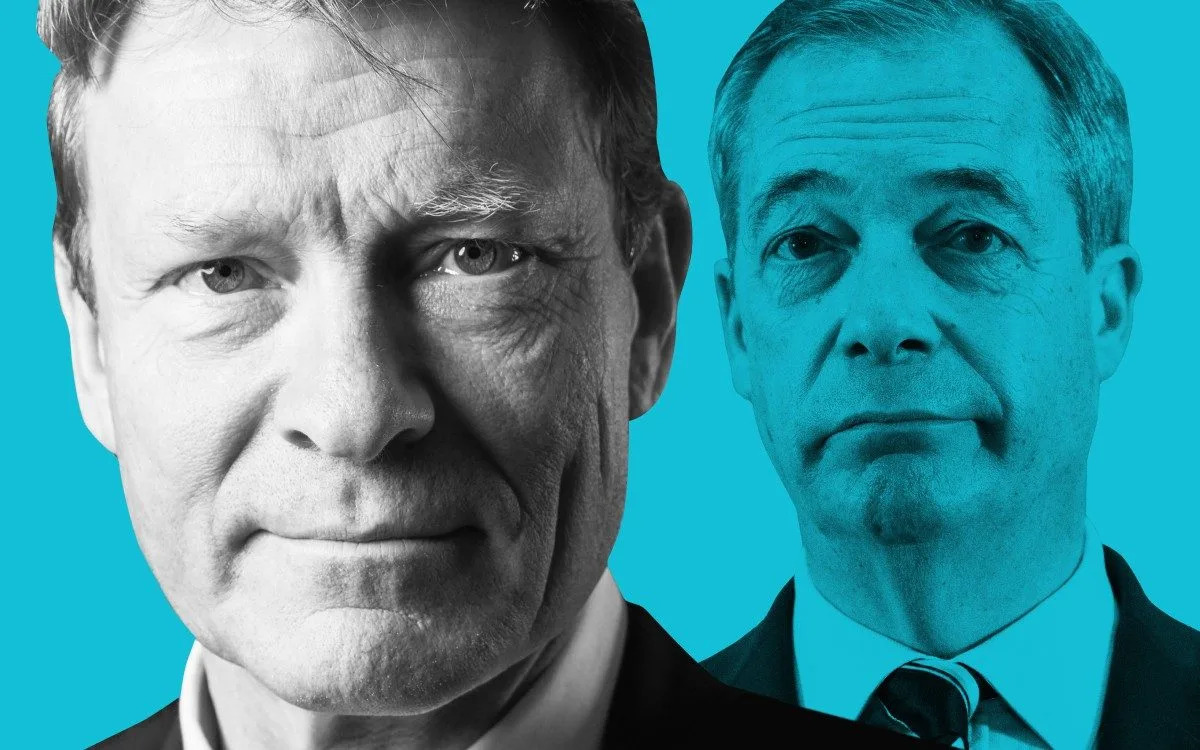
Since rebranding itself in 2020, Reform UK has become a formidable force on the political scene
Founded in 2021 as a relaunch of the Brexit Party, Reform UK stands almost neck and neck with the Conservatives in the wake of Nigel Farage shock announcement that he will stand as an MP and the party’s leader.
They are on track to cost the Conservatives a significant proportion of voters from the political Right ahead of the looming general election on July 4, edging one point ahead of the Prime Minister’s party for the first time in the latest figures from YouGov.
Already, the party has faced pivotal change throughout their campaign with co-founder Mr Farage returning to front-line politics to lead a “political revolt” aimed at toppling the Conservative Party after replacing Richard Tice, a former businessman and MEP who has led the party since 2021.
His pledge came as a surprise to most given Mr Farage had previously ruled out standing in the general election in his first campaign speech on May 23, promising to support Mr Tice from the sidelines instead.
Reform gained its first MP in March after Lee Anderson, a former deputy chairman of the Tory Party, defected following his suspension over a row about Sadiq Khan.
Mr Tice and Mr Farage announced the Brexit Party would become Reform on Nov 1 2020 in an article for The Telegraph published at the start of the second Covid lockdown.
They used the joint article to declare “lockdowns don’t work” and instead advocated a policy of “focused protection” for the most vulnerable. They also called for sweeping reform of major institutions beyond the pandemic.
Reform stood candidates at the London Assembly, Scottish Parliament and Senedd elections in 2021. Though failing to pick up any seats, the party gathered just over 42,500 supporters across all three elections.
The same year it won two council seats in the local elections, both in Derby.
Reform UK polls
The party’s backing in the polls remained largely static throughout 2021, averaging around three percentage points, although it had risen to an average of 6 per cent by the end of 2022 amid growing public frustration with the Conservative Party in the wake of the deposition of Boris Johnson and Liz Truss.
The party’s fortunes improved vastly during 2023 and the early months of 2024, with average support for Reform almost doubling from 6 per cent in January 2023 to 10.1 per cent at the start of March.
The rise of Reform can be attributed to a combination of the party’s policy offer and fortuitous circumstances.
Reform UK policies
On the economic front, it has promised sweeping cuts to levies including corporation tax and inheritance tax at a time when Rishi Sunak and Jeremy Hunt are overseeing the country’s highest tax burden since the Second World War, with a further peak projected later this decade.
Despite successive Conservative governments promising to cut immigration, net migration reached record levels in 2022 and previous Reform leader Mr Tice has cited this “betrayal” by the Tory government of its past manifesto pledges as a driving force behind his party’s success.
Reform’s promises on border control include “net zero immigration”, leaving the European Convention on Human Rights (ECHR) – a demand made by many Tory backbenchers, and a popular idea among the party’s grassroots – and declaring illegal immigration as a national security threat.
On May 30, the party announced plans to introduce a migrant tax that would force employers to pay a higher National Insurance (NI) rate on foreign workers.
Writing in The Telegraph, Mr Tice pledged a 20 per cent National Insurance rate for every foreign worker in comparison to the current 13.8 per cent for domestic British workers.
The party has also vowed to abolish the Government’s flagship net zero targets, claiming that the green push is doing more damage to the British economy than anything else.
There was a further bounce in support for Reform following Mr Sunak’s November reshuffle, in which Suella Braverman was sacked as Home Secretary over her criticism of pro-Palestinian protests, which she dubbed “hate marches”.
The same reshuffle took Westminster by surprise with the return of Lord Cameron as the new Foreign Secretary, a move that angered many on the Tory Right as the former prime minister is widely perceived to be on the liberal wing of the party.
Mr Tice told GB News at the time: “The truth is our server has almost exploded with fury at what’s happened today with the return of David Cameron. Let’s remember this is the gentleman who campaigned against Brexit, and almost everything he did on foreign policy was wrong.”
As a result of its outflanking of the Conservatives on the Right in many policy areas and channelling the disillusionment of traditional Tories with its rhetoric, the party may well have an even greater impact at the next general election than in 2019, when it stood aside from seats held by Mr Johnson’s Tory candidates.
Now commanding the support of around one in ten voters, the party could block Mr Sunak from winning in dozens of seats he may otherwise retain.




